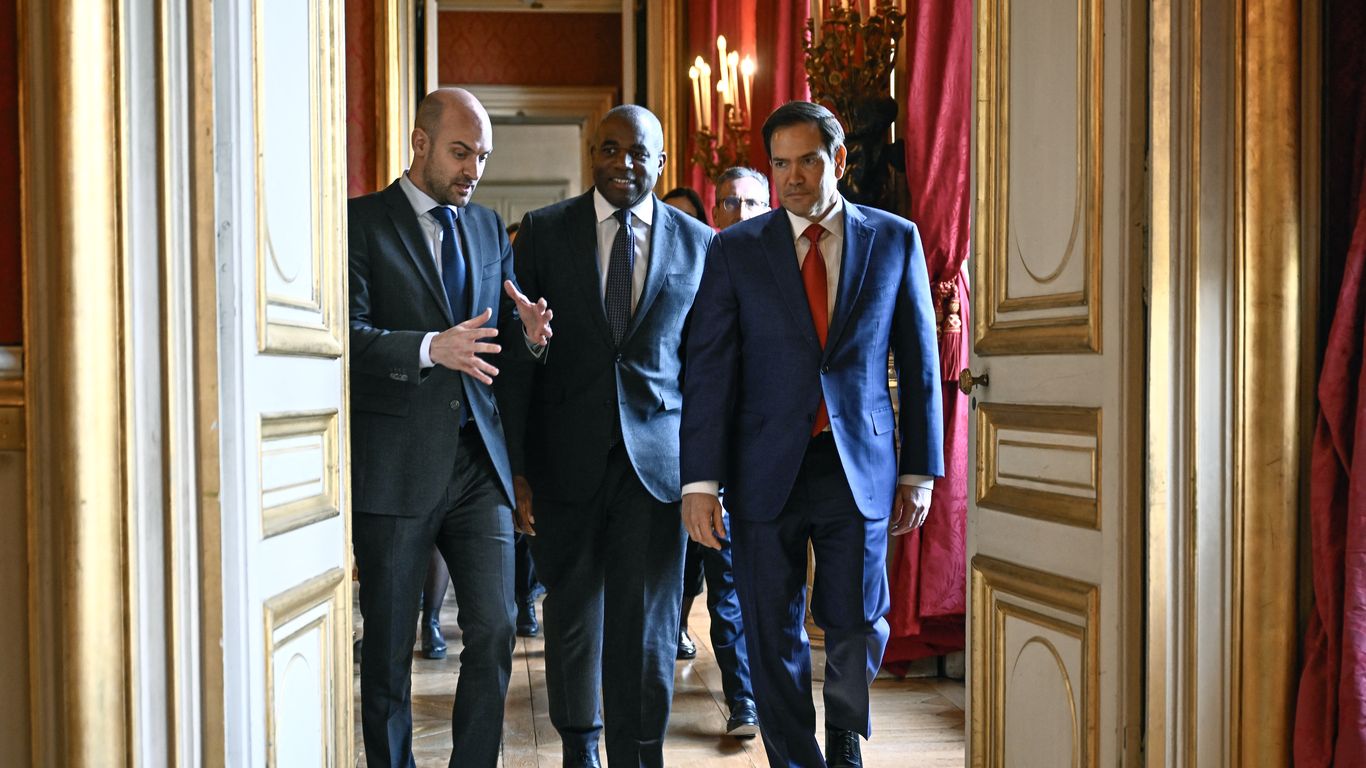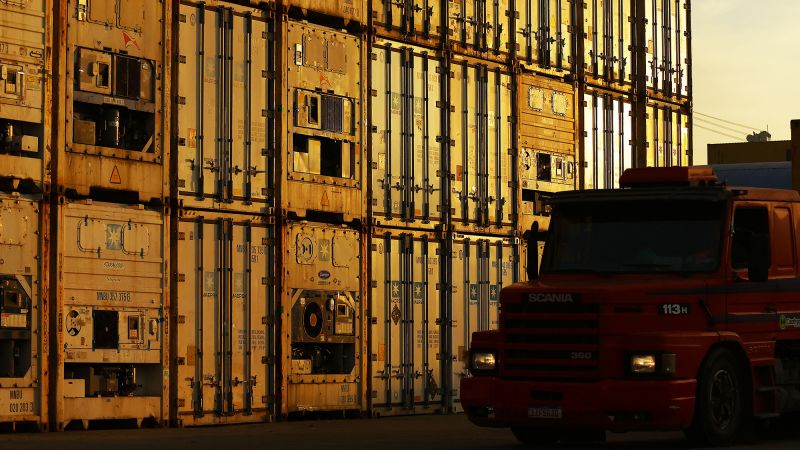Iran's Rial Plummets Amid European 'Snapback' Sanctions Threat
Introduction
Iran’s rial currency has fallen to near-record lows as concerns grow that European nations may reimpose United Nations sanctions over its nuclear program. This move, known as the “snapback” mechanism, could freeze Iranian assets abroad and halt arms deals. On…
The Threat of European ‘Snapback’ Sanctions
The United States withdrew from the 2015 nuclear deal with Iran in 2018, but European nations, including France, Germany, and the United Kingdom, have continued to support it. However, tensions have risen as the U.S. has been pushing for the reinstatement of UN sanctions, which were lifted as part of the deal. This has led to fears that European nations may trigger the “snapback” mechanism, causing further damage to Iran’s economy and currency.
The Impact on Iran’s Economy
The rial has already lost about 30% of its value in 2020, and the threat of European sanctions has only added to the currency’s instability. The falling rial has led to an increase in the prices of imported goods, making it more difficult for Iranians to afford essential items. This has also caused a rise in inflation and a decrease in purchasing power, causing further strain on the country’s economy.
About the Organizations Mentioned
United Nations
The United Nations (UN) is a pivotal international organization established in 1945, following the devastation of World War II, with the primary goal of maintaining global peace and security, fostering international cooperation, and promoting social progress. The UN Charter, signed by 51 founding member states, including the United States, the United Kingdom, China, and the Soviet Union, laid the foundation for this ambitious endeavor[1][3]. ## History and Structure The UN was born out of the failures of its predecessor, the League of Nations, which failed to prevent World War II. Key planning meetings, such as the Dumbarton Oaks Conference in 1944, defined the UN's structure, which includes the General Assembly, the Security Council, the Economic and Social Council, the Trusteeship Council, the International Court of Justice, and the Secretariat[1][6]. The Security Council, with five permanent members (the United States, China, France, Russia, and the United Kingdom), holds significant influence due to its veto power[2]. ## Key Achievements Over the years, the UN has played a crucial role in conflict resolution, human rights advocacy, and sustainable development. Notable achievements include the establishment of the Universal Declaration of Human Rights in 1948 and the implementation of numerous peacekeeping missions worldwide[3][4]. The UN has also been instrumental in addressing global challenges such as climate change and pandemics through its various programs and agencies. ## Current Status Today, the UN comprises 193 member states, with its most recent addition being South Sudan in 2011[5]. The organization continues to evolve, addressing emerging issues like digital governance and cybersecurity. Despite challenges, the UN remains a cornerstone of international diplomacy and cooperation. ## Notable Aspects The UN's work is not limited to politics; it also impacts business and technology through initiatives that promote sustainable development and digital inclusion. Its role in setting global standards and fostering international cooperation makes it a significant player in shaping the
United States
The **United States** is a federal republic and a global superpower, playing a leading role in economics, military strength, technology, and governance. It is a nation of approximately 348 million people as of 2025, characterized by its diverse population and dynamic economy[8][6]. Founded in 1776 following independence from British rule, the U.S. rapidly evolved into a major world power, especially after World War II, when its technological and economic investments solidified its global dominance[4]. Today, it remains the world’s preeminent military power, with 76% of Americans recognizing this status, while about half view it as the leading economic power globally, though China is seen as a rising competitor[2][3]. The U.S. government operates through a complex system that manages federal finances, taxation, social welfare programs, and trade policies. Recent legislative changes, such as the 2017 Tax Cuts and Jobs Act and the 2025 One Big Beautiful Bill Act, have shaped the tax landscape to influence economic growth, labor markets, and federal revenue[1]. Despite challenges like rising federal deficits projected to reach 6.9% of GDP by 2027, consumer spending remains resilient, and business investment is expected to grow steadily in 2025[5]. In governance, the U.S. is rated "Free" with a score of 84/100 by Freedom House, though concerns about democratic erosion and partisan conflicts persist[6]. Public trust and satisfaction with government services fluctuate, reflecting ongoing debates about policy effectiveness and institutional competence[7]. Technologically, the U.S. maintains a critical edge, underpinning its economic and geopolitical power. Experts warn, however, that technological dominance is not guaranteed indefinitely, emphasizing the need for adaptive policies and international cooperation to sustain leadership in innovation and global affairs[4]. Overall, the United States remains a pivotal force in global business, technology, and politics, balancing historic strengths with contemporary challenges in
France
France is a leading global economic and political entity rather than a conventional organization. It is a semi-presidential republic with Paris as its capital and largest economic and cultural center[2]. Economically, France ranks as the world’s ninth-largest economy by purchasing power parity and the second largest in the EU, maintaining a diversified and robust industrial and service sector. It is a major manufacturing hub in Europe, the third largest after Germany and Italy, and a top agricultural producer within the EU[2]. Historically, France has been a major player in international affairs as a founding member of the European Union, OECD, G7, and G20, reflecting its enduring influence in both global governance and economic policy[2]. Its economy features significant government involvement and a social market structure that balances free market capitalism with social welfare policies[2]. France also ranks highly on innovation indexes, placing 12th globally in 2024, reflecting strong investments in education, research, and technology[2][5]. Key achievements include substantial progress toward environmental sustainability. Since 1990, France has reduced its greenhouse gas emissions by 35%, aligning with the Paris Agreement goals. It leads in ecological protection, notably in its vast maritime zones and overseas territories[1]. The country is actively transforming its economy by promoting renewable energy, electrification of transport, and sustainable food consumption to meet ambitious climate targets by 2030 and carbon neutrality by 2050[1]. Currently, France’s economy is experiencing moderate growth, with a projected GDP increase around 0.7-0.8% in 2025 amid fiscal adjustments and global uncertainties. Private investment is subdued but expected to recover by 2026, driven by easing monetary policy and stronger domestic demand[3][4][6]. The government is focused on reforms to stimulate digital innovation, simplify regulations, and enhance investment, especially in innovative small and medium enterprises[6]. Notable aspects include France’s highly educated workforce, world-class universities, and strong research institution
Germany
## Overview Germany is not an “organization” in the traditional sense but a sovereign nation and the largest economy in Europe, recognized globally for its advanced industrial base, technological innovation, and robust social market economy[1][4]. It operates as a federal parliamentary republic with a strong emphasis on democratic governance, civil liberties, and a vibrant civil society[7]. Germany is a founding member of the European Union and the eurozone, and its economic and political influence extends well beyond its borders[1]. ## History Modern Germany emerged from the reunification of East and West Germany in 1990. Since then, it has transformed into a global economic powerhouse, leveraging its manufacturing prowess, engineering expertise, and commitment to research and development. In the late 1990s, Germany was dubbed the “sick man of Europe” due to economic stagnation, but sweeping labor market reforms in the early 2000s revitalized its competitiveness and growth[5]. ## Key Activities and Achievements Germany’s economy is highly diversified, with a focus on advanced manufacturing (notably automotive, machinery, chemicals, and electronics), a dominant services sector, and a strong tradition of applied research that bridges academia and industry[1][4]. The country is the world’s third-largest exporter, with exports accounting for over half of its national output[1]. It is home to globally recognized brands, world-leading trade fairs, and a dense network of Mittelstand—small and medium-sized enterprises that are the backbone of its economy[2]. Notable achievements include maintaining a consistent trade surplus, pioneering renewable energy technologies, and developing one of the most efficient social security systems in the OECD, which accounts for about 25% of GDP[1]. Germany has also played a central role in European integration, serving as a key architect of EU policies and the euro currency[1]. ## Current Status As of 2025, Germany’s economy is expected to grow by only 0.2–0
United Kingdom
The **United Kingdom (UK)** is a sovereign island country located off the northwestern coast of mainland Europe, comprising England, Scotland, Wales (all on the island of Great Britain), and Northern Ireland on the island of Ireland. London, its capital, is a global commercial, financial, and cultural hub[2]. The UK is the world's sixth-largest economy, with a 2024 GDP growth of 0.8%, driven mainly by services, including professional, scientific, and technical activities[1]. Historically, the UK evolved from a collection of kingdoms into a unified state with a constitutional monarchy, currently led by King Charles III and Prime Minister Keir Starmer (Labour government as of 2025)[5]. Its legacy includes a vast empire and foundational contributions to law, democracy, science, and technology. Today, it remains a major center for innovation, finance, and technology, with London being a critical global financial center. Key achievements include its robust service sector growth, particularly in professional and technical industries, despite declines in traditional sectors like mining[1]. The UK has also made significant strides in scientific research, technology development, and cultural influence worldwide. However, challenges persist, including supply chain issues post-Brexit, inflation-driven cost-of-living crises, and political controversies such as immigration policies and social welfare reforms[3][6]. In 2025, the UK faces ongoing economic and social challenges, including poverty and inequality, complicated further by political dissatisfaction with recent government measures like the withdrawal of winter fuel payments for many pensioners[3][6]. Despite this, it remains a stable democracy with regular free elections and a vibrant media landscape[7]. The UK’s population is approximately 69.7 million in 2025, with diverse urban centers like Birmingham, Manchester, Edinburgh, Glasgow, and Cardiff contributing to its economic and cultural dynamism[2][9]. The government is focused on addressing socio-economic disparities while maintaining its role as a leading global economic and


















